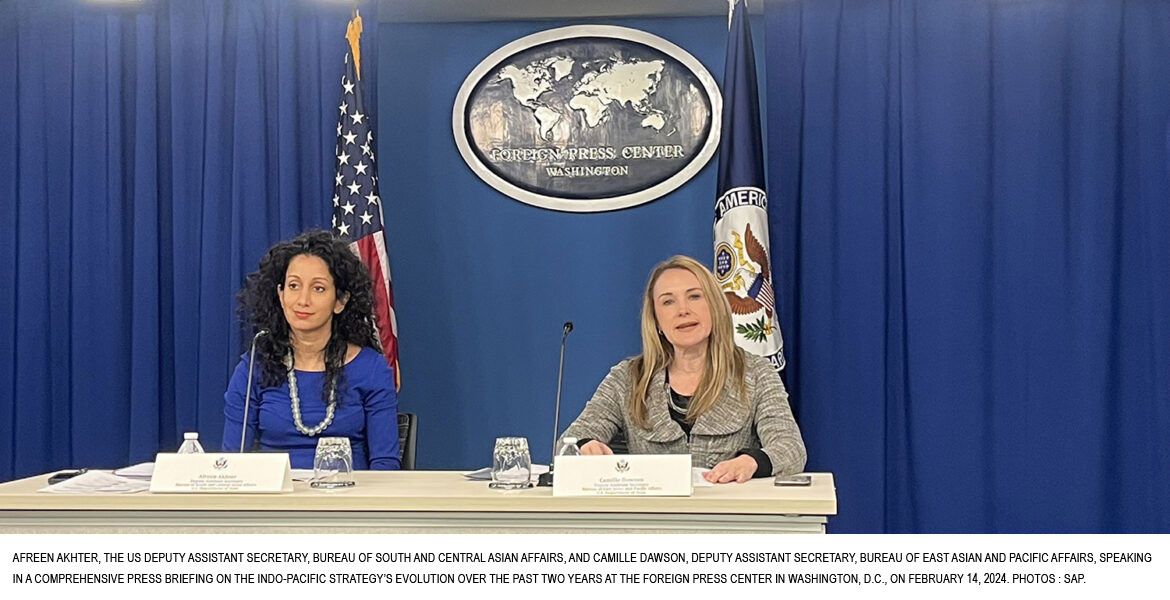In a comprehensive press briefing addressing the Indo-Pacific Strategy’s evolution over the past two years, Afreen Akhter, the US Deputy Assistant Secretary in the Bureau of South and Central Asian Affairs, engaged with inquiries from this correspondent of the South Asia Perspectives (SAP) regarding the alignment of the Indo-Pacific Strategy with the dynamic landscape of Bangladesh.
Joined by Camille Dawson, Deputy Assistant Secretary in the Bureau of East Asian and Pacific Affairs, the conversation delved into the core focus of democratic principles and their seamless integration into the Indo-Pacific Strategy on Wednesday at the Foreign Press Center in Washington, D.C.
The correspondent, raised questions about Bangladesh’s political landscape, inquiring about the alignment of the Indo-Pacific Strategy with the country amidst concerns over its shift towards an authoritarian regime. He also brought up the ruling prime minister’s criticisms of the Indo-Pacific Strategy.
In response, Akhter passionately underlined the unwavering dedication of the US to engage with Bangladeshi society. She detailed initiatives such as the South Asia Governance Fund, emphasizing their role in building civic space and fostering collaboration with farmers, labor organizers, and various civil society actors. The overarching goal remains the fortification of democratic institutions over the long term.
Transitioning to broader priorities, Akhter elucidated the strategic alignment between the US strategy and Bangladesh’s outlook. This broader spectrum encompassed economic investment, climate change collaboration, and enhanced security cooperation. Subsequently, the conversation seamlessly shifted towards addressing the prevalent democracy and human rights concerns in Bangladesh.
The correspondent, displaying a keen understanding of the intricacies at play, inquired about specific US initiatives aimed at supporting the return to democracy in Bangladesh. This inquiry, acknowledging prevailing criticisms, including references to a Wall Street Journal piece suggesting a potential shift away from democracy promotion, sought clarity on the US stance.
In her reply, Akhter reiterated the unyielding commitment of the US to building democratic institutions within Bangladesh. She emphasized the ongoing efforts with media, civil society, and labor organizers, stressing the importance of nurturing these institutions to lay a robust foundation for Bangladesh’s democratic future.
As the multifaceted conversation unfolded, it became increasingly evident that the US, underlining its steadfast dedication, remains committed to a collaborative effort with Bangladesh. This commitment extends beyond merely strengthening democratic values and institutions; it serves as a reaffirmation of the unwavering dedication to democracy and human rights within the broader region.

